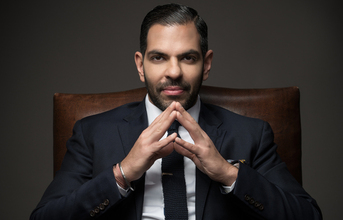
Looking ahead
Keeping the company alighned with the market trends and demands, Sona Group has brought in exciting innovations. Elaborating on it, Kapur stated, "We indigenously designed and developed a new product - the 5kW Electric-Axle - and witnessed a successful pilot phase, where we delivered more than 110 to 115 E-axles, typically for retro-fitting. This year we are also looking to increase our customer base. We are in talks with many OEMs to explore if we can have these Eaxles fitted within the OEMs. Today, the E-axle is only geared for the Electric Rickshaw (E-Rickshaw). Once we increase the motor size of the E-axle, there will be great potential for the product in the future and we would be looking at other vehicles as well."
Looking at the market ahead, he mentioned, "The automotive industry's roadmap is extremely disruptive. We have seen the evolution of electric vehicles from the traditional ICE (internal combustion engines) to a complete electric vehicle. We have also seen hybrid electrics; we are already supplying to electric vehicle manufacturers from India and Germany. These manufacturers are global players and, therefore, we are geared to cater to their demands. Fortunately, with our products, which is the differential and in the driveline, we see these products continuing for the foreseeable future. Therefore, our forgings and gears will continue to exist"
"Parts of the vehicle will eventually be eliminated because of the new kind of technology cars will adopt. In fact, if you consider autonomous driving, almost everything in the vehicle changes. In terms of transformation, there are all kinds of technology the automotive industry will see such as flying cars. When you look at our product, the driveline or the differential, if we were to eliminate the differential, we will really go to in-wheel or hub motors and even when we do that,forgings will still be required. It may not be the same type of product, but forgings will be required. So we will continue to produce and expand our capacity to the new kind of differential, if it ever does come about," he continued.
"However, for the foreseeable future, we are certain the differential will remain in the current shape and form. But there will be much change regarding the automotive industry and so, the components industry needs to map or create a technological roadmap in conjunction with what's happening to OEMs. As OEMs are evolving and moving from one technology to the next, from the traditional technology of combustion engines to electric and then to pure electric, the components industry will have to follow that," he projected.
As the industry is on the journey to accept BS VI by 2020, Kapur says that the industry will be all set embrace new regulations. "Yes, we are absolutely ready to accept BS VI norms by 2020. When you look at the Indian automotive components industry, it is a matured one. We are not the same industry that used to be just focussed on Indian technology or markets alone. Today, the Indian automotive components industry is well established. Many companies are investing in R&D as well as design and development of products, indigenisation of tool rooms, and localisation of products. Therefore, I am confident that the Indian automotive components industry is absolutely ready to accept BS VI norms by 2020."
END



























